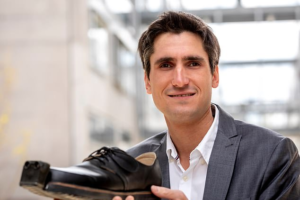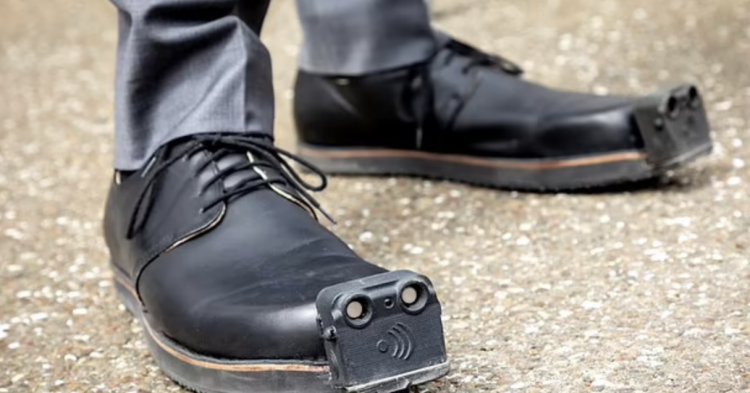Imagine walking confidently down the street, feeling every step with assurance, even if you can’t see a thing. Thanks to the innovative minds of computer scientists from Austria, this could soon become a reality for blind individuals worldwide.
Meet the InnoMake shoes – a groundbreaking invention designed to revolutionize the way blind people navigate their surroundings. Created by tec-Innovation, with support from the Graz University of Technology, these shoes are equipped with waterproof ultrasonic sensors that act as the wearer’s eyes on the ground.

Picture this: as you stroll along, these sensors diligently scan the area up to 13 feet ahead, detecting any obstacles in your path. And when danger looms, the shoes send out gentle vibrations and alerting noises, growing faster and more noticeable as you approach closer to the obstacle, much like the parking sensors on modern vehicles.
Markus Raffer, a founder of Tec-Innovation who is visually impaired himself, shares his personal experience with the shoes: “The ultrasonic sensors on the toe of the shoe detect obstacles up to 13 feet away. The wearer is then warned by vibration and/or acoustic signals. This works very well and is already a great help to me personally.”
But here’s the kicker – these shoes aren’t just about avoiding obstacles; they’re about providing valuable information about your environment. With the ability to detect not only objects but also determine their nature, whether it’s a wall, a car, or a staircase, these shoes offer crucial insights to the wearer.
And the best part? Tec-Innovation isn’t stopping there. With plans to enhance the shoes with camera-based recognition software and machine learning, future versions will take navigation for the blind to a whole new level. Imagine having your own personalized “street view navigation map” right at your feet.
“As it currently stands, only the wearer benefits in each case from the data the shoe collects as he or she walks,” explains Friedrich Fraundorfer at TU Graz. “It would be much more sustainable if this data could also be made available to other people as a navigation aid.”
So, as tec-Innovation continues to innovate and improve on their design, blind individuals around the world can look forward to stepping into a future where independence and mobility know no bounds.
